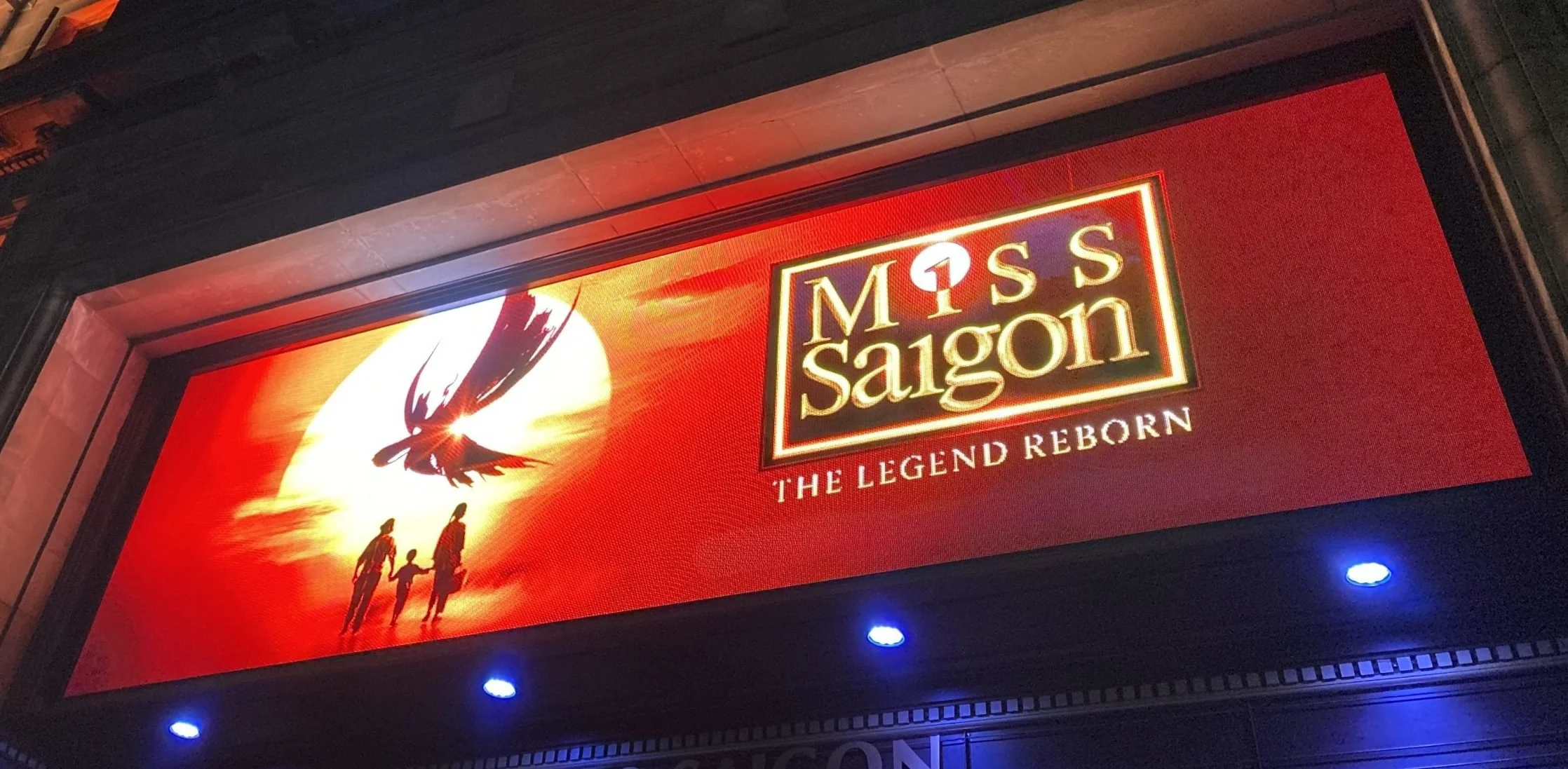Maybe We’ve Outgrown “Miss Saigon”
by Chris Peterson
Theatre people always have opinions and sometimes those opinions come in hot. Recently, I put out a call on social media asking for your boldest, spiciest takes on musicals or plays, and the responses did not disappoint. From thought-provoking critiques to eyebrow-raising declarations, you gave me plenty to chew on.
So here’s what we’re going to do: I’ll be exploring as many of these submissions as I can in this column series. Some I may agree with, others I may not, but that’s the fun of it. Theatre thrives on conversation, and even the most out-there hot take can lead to surprising insights and fascinating discussions.
Think of this as an open forum, where no opinion is too bold to examine. Ready to dive in? Click on the “Exploring Musical Hot Takes” tag at the bottom to keep up with every installment.
A commenter said, “We shouldn’t do Miss Saigon anymore. There are plenty of other shows now that actually portray Asian characters telling Asian stories that don’t rely on misogyny and racism.”
And I’ll be honest, I get it. I really do.
As a Korean American, I’m sensitive to how our cultures have been portrayed on stage. The stereotypes, the accents, the trauma stories, they all start to pile up. And Miss Saigon sits right in the middle of that pile. It’s a show about a young Vietnamese woman, Kim, who falls for an American soldier during the war and ends up dying so her son can have a better life in the West. People have been calling out the story for decades for its white savior framing, its fetishization of Asian women, its history of yellowface, and that’s just scratching the problematic surface with this show.
So yes, I understand why people want to move on. We finally have more stories now. Stories written by Asian creators, stories that show our full range of experiences instead of repeating the same tragedy over and over again. Why keep doing Miss Saigon? Why cling to something that so clearly carries the weight of an era that didn’t see us clearly?
And yet, I can’t quite bring myself to say we should erase it. Maybe it’s because I grew up in a time when Miss Saigon was one of the only Broadway shows where an Asian woman stood at the center of the story, even if that story was deeply flawed. For better or worse, it existed. It gave a generation of Asian performers the rare chance to be seen, even inside a framework that didn’t always honor them.
That doesn’t excuse its problems, but it does complicate the conversation. Because if we pretend Miss Saigon never happened, we also risk forgetting why shows like it had to change. We lose a reminder of how far representation has come and how easily we can slide backward if we’re not paying attention.
So maybe the question isn’t “Should we still do Miss Saigon?” but “What would it mean if we did?” If a theatre chooses to produce it now, they have to bring intention, not nostalgia. They have to address the criticism directly, contextualize the story, include Asian dramaturgs and voices in the process, and treat the show as a conversation piece rather than a comfort piece. But if they’re doing it because it’s a recognizable title that fills seats, then I agree. Maybe it’s time to let it go.
To my knowledge, there isn’t a major revival on the horizon, though there’s a new tour in the UK. And maybe that’s fine. Maybe we need some time to breathe, to give other stories space to rise.
I want the next generation of Asian American kids to see themselves on stage in stories that don’t hinge on suffering. I want them to see characters who are messy, joyful, complicated, and powerful, not just symbols of sacrifice. I want them to know that our stories don’t need a Western frame to matter.
So when someone says, “We shouldn’t do Miss Saigon anymore,” I hear both the frustration and the hope behind it. Frustration that it’s taken this long for people to notice what’s been wrong all along. Hope that we finally have something better to offer.
Maybe we don’t need to cancel Miss Saigon. Maybe we’ve just outgrown it.
